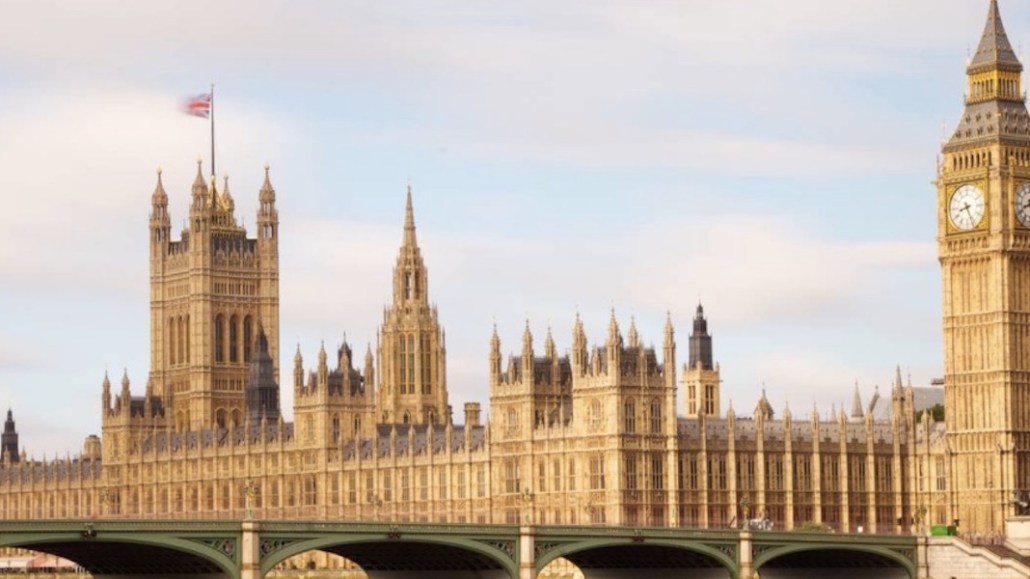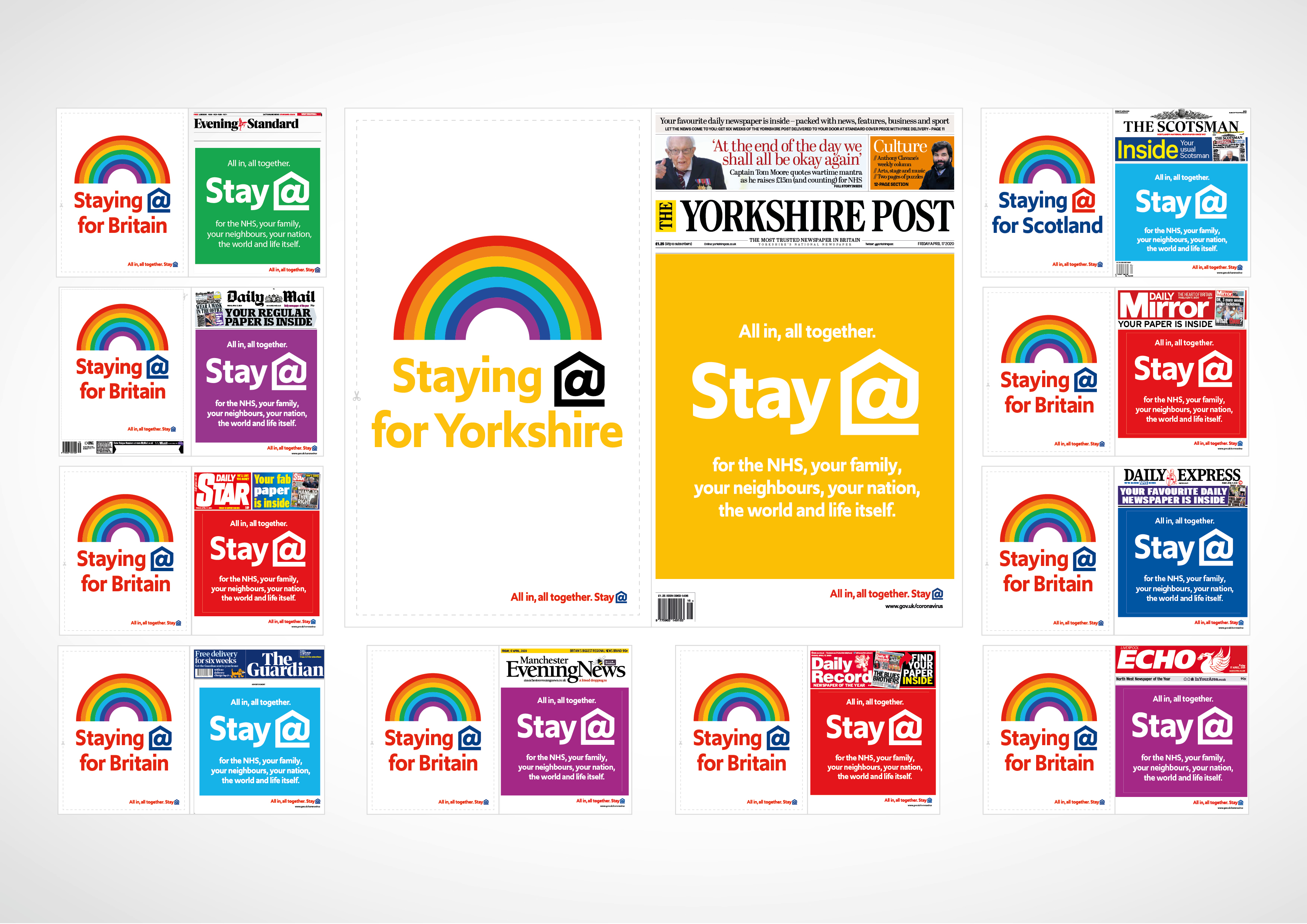Connect with execs from The New York Times, TIME, Dotdash Meredith and many more

At a time when some advertisers are hitting pause on spending and others are avoiding appearing next to coronavirus articles — or even just “bad news” — the U.K. government is rapidly ascending the rankings of U.K. news publishers’ most important clients — and cheerleaders — during the crisis.
The U.K. government has aired a coronavirus public information campaign across print, TV, radio, digital and outdoor since March. The latest iteration of the campaign, which was created by the National Health Service’s ad agency MullenLowe, features frontline health workers and the tagline, “Stay home. Protect the NHS. Save lives.” Wavemaker is the media agency leading the push.
“We recognize the vital role that media organizations, including local newspapers, play in ensuring the provision of reliable, high-quality information during this time,” said a U.K. government spokeswoman. “We also understand the acute pressures newspapers are facing financially due to the steep drop in advertising revenues and the implications of the lockdown on print circulation.”
Monthly reported Nielsen ad spend data has a lag, but U.K. news publishers told Digiday that the government is now one of their biggest spenders — alongside the likes of supermarkets, utilities, banks, telecommunications and online entertainment clients who have continued spending throughout the crisis. Those publishers said it’s difficult to analyze whether the government has paused activity from other departments and reallocated spend to these public service announcement campaigns, but estimated the government is spending more than usual, judging by their bookings. The publishers also pointed out that the lack of activity from other advertisers in the current market means the government campaigns will have an outweighed share of voice compared with normal times.
The U.K. government spent £6.2 million ($7.7 million) on news brands in the 12 months to 31 January 2020, making it the 30th biggest spender on news brands in the period before the crisis started to hold in the country, according to Nielsen Addynamix data analyzed by newspaper marketing body Newsworks. In total, the Government spent £12.4 million ($15.5 million) across all media in February 2020, down 4.1% year-on-year, according to Nielsen AdIntel. March 2020 data was not available at the time of publication.
The U.K. government has also ring fenced budget specifically for news brands. Last week, the government and newspaper industry launched a three-month advertising partnership dubbed “All in, all together.” The campaign — worth approximately £35 million ($44 million) for the full course, according to sources — kicked off on Apr. 17, with all the U.K.’s national and regional daily news brands running near-identical cover wraps and homepage takeovers, which carried the copy, “Stay at home for the NHS, your family, your neighbours, your nation the world and life itself.” In the print version, the back of the cover features a rainbow image that can be used as a poster — similar to the symbols Brits have put up in their windows over the past few weeks to show support to NHS workers.

“Through both their editorial and advertising platforms, news brands have a critical role to play in our country’s response to this pandemic,” said regional news publisher Newsquest chief executive and News Media Association chairman Henry Faure Walker in a statement. “This government ad campaign is an important part of that.”
It’s not just through its ad spend that news publishers are leaning on the government for assistance. Prior to the government ad partnership, Newsworks launched a campaign dubbed #Backdontblock, seeking to persuade advertisers to remove trusted U.K. news outlets from their block lists. Newsworks estimated overzealous keyword blocking could mean U.K. newspapers would lose £50 million ($62 million) in revenue if the coronavirus pandemic persists for a further three months.
The government appears to be supporting the news industry with this plea too. “I hope that everyone would appreciate that, with limited exceptions, it cannot be right to block advertising around Covid-19 related stories given the clear public interest in people having access to reliable content on Covid-19, and given it makes up the majority of the output of the news industry at this time,” U.K. culture secretary Oliver Dowden wrote in a letter to advertisers, agencies and tech platforms earlier this month, The Guardian earlier reported.
“The [U.K.] government tends to be an important client at the best and worst of times,” said Steve Goodman, founder of media agency The Press Business.
Analysts at Enders analysis predict the pandemic will cause the U.K. newspaper and magazine sector to lose £750 million ($933 million) in ad revenue and £150 million ($187 million) in print sales this year.
Update: This article has been updated to reflect Enders’ revised estimates from April 17.
More in Media

With sports driving the marketplace, David Levy and Chris Weil hope to clean up with HS&E
In today’s red-hot sports marketplace, David Levy and Chris Weil are crafting new ad opportunities with secondary and tertiary sports.

Google’s latest core update leaves publishers rattled, but its consequences are still to be determined
Publishers told Digiday that unlike the March Google core update, the latest one was the more typical nail-biting rollercoaster.

In creator marketing, loose disclosures are finally catching up
Due to the widespread nature of creators’ FTC disclosure violations, there are no hard numbers regarding the rise or overall amount of undisclosed brand deals. But both creators and marketers said that they had observed a significant uptick in this activity across both genres and platforms.





